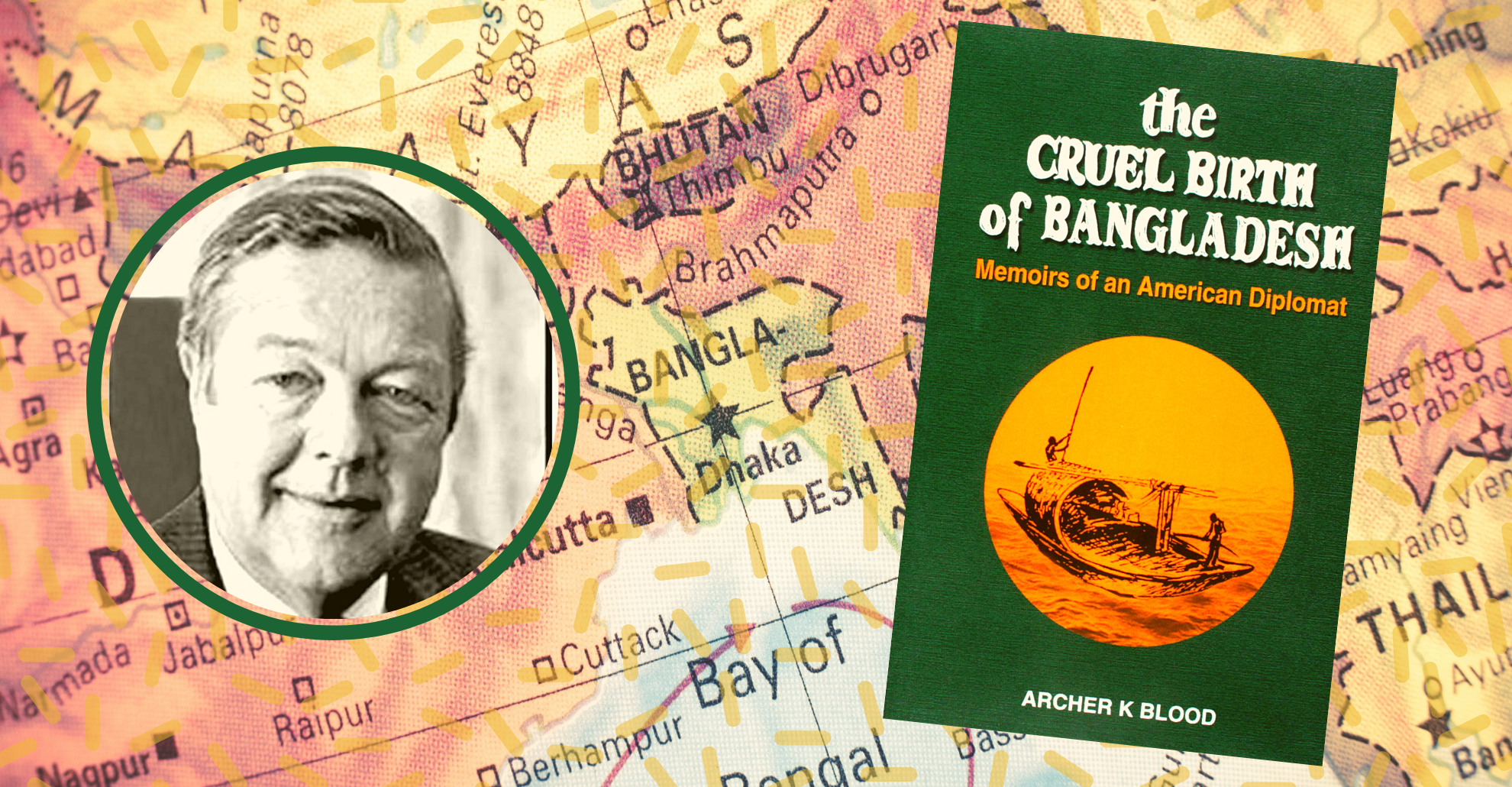The Liberation War of 1971 is all over the headlines, granted its 50th anniversary is round the corner. Numerous commentaries and documents are being revisited in the events during the ‘Swarnim Vijay Varsh’ celebrations across the countries. One such book which played a pivotal role in documenting the Liberation War and the birth of Bangladesh is the diplomat Archer K Blood’s memoir “The Cruel Birth of Bangladesh: Memoirs of An American Diplomat” published in 2002.
About the Author
Archer K Blood was the American Consul General in Dhaka. He also sent the famous and strongly worded ‘Blood Telegram” which mentioned the atrocities committed against the Bangla sect of people in the Eastern Province of Bangladesh. He was a daily reporter during the Bangladesh genocide to the White House. However, he was not able to elicit any response by the officials of the White House but the general public discovered some of his leaked pieces which caused a major stir.
Blood received the Christian A. Herter Awarded in 1971 for “extraordinary accomplishment involving initiative, integrity, intellectual courage and creative dissent” during the timeline of the Bangladesh Liberation War.
About the Book
More than entailing the atrocities inflicted by Pakistan and uprising rebellion by the Banglas, the book focused on the parched and silent lips of the West administration on the issue. Following the March 25, 1971 military crackdown, Blood and his colleagues at the Dhaka Consulate continued to report the details of the genocide of unarmed Bengalis by Pakistani Junta to Washington and urged the US government to take cognizance, only to receive deafening silence.
The book accounts the inevitable emergence of Bangladesh seen through the eyes of a sympathetic American diplomat. The fateful and horrendous events are intrinsically captured in the memoir by the author. The timeline of the book spans from March 1970, when the author arrived in Dhaka as an American Consul General to June 1971, iterating his withdrawal from the Dhaka Office. The book records insightful predictions on the unfolding crisis and also ponders various judgements of his conscience. The book has by-and-large demeaned the stance of the US as no retaliation made against the atrocities committed by Pakistan. The book further throws light on the future of the Awami League as the main anchor, ambitiously driving the separation from Pakistan. In addition, Arthur Blood also encouraged India’s assistance in the ‘Liberation Movement’ and lauded their training, arming and guidance towards the Bangladeshi Rebel Force.
The author was a diplomat and the reflection of the same can be observed in his writing style. His ability to provide a detailed documentation of the instances in clear and concise language extended to a great deed for the general readers. His writings were also opinionated and was supported by wise judgement and wit, grasping the reader’s attention and involving them in the narrative. The book sheds light on many small, obscure, little-known events of the 1971 war. For instance, the book narrated an incident where an American diplomat in Dhaka had to make a diplomatic call at a gunpoint, held by the Pakistani Junta. The nonchalant tone in which Blood has described his instance of calling on the Chief Martial Law Administration, General Tikka Khan to the American administration, with the sole motive of defaming the image of American diplomats, is absolutely haunting and horrifying.
The excerpts from the book also drew striking observations on the lives of the two leaders, Sheikh Mujibur Rahman and Zulfiqar Ali Bhutto (former Prime Ministers of Bangladesh and Pakistan respectively). Arthur pointed out obvious similarities between the lives of the two leaders. Both the eminent personalities have been described as exceedingly courageous and indispensable. For Bhutto losing his control over the Eastern Pakistan and Mujib rejoicing in the euphoria post December 1970 elections, both personalities were vital and necessary for their respective people. Arthur has credited both Bhutto and Mujib for the secure political future that both these two countries now look forward to.
Conclusion
Scrumming through the pages of the book, a reader can’t overlook the compassion by which Arthur has tried to comprehensively enunciate the sufferings of the local Bangla citizen and the cruel days of 1971. Unlike the silent retirement from the US, Arthur responded to the call of conscience and thus, his documentation offers a very inspirational glimpse of the heroic dissent.

